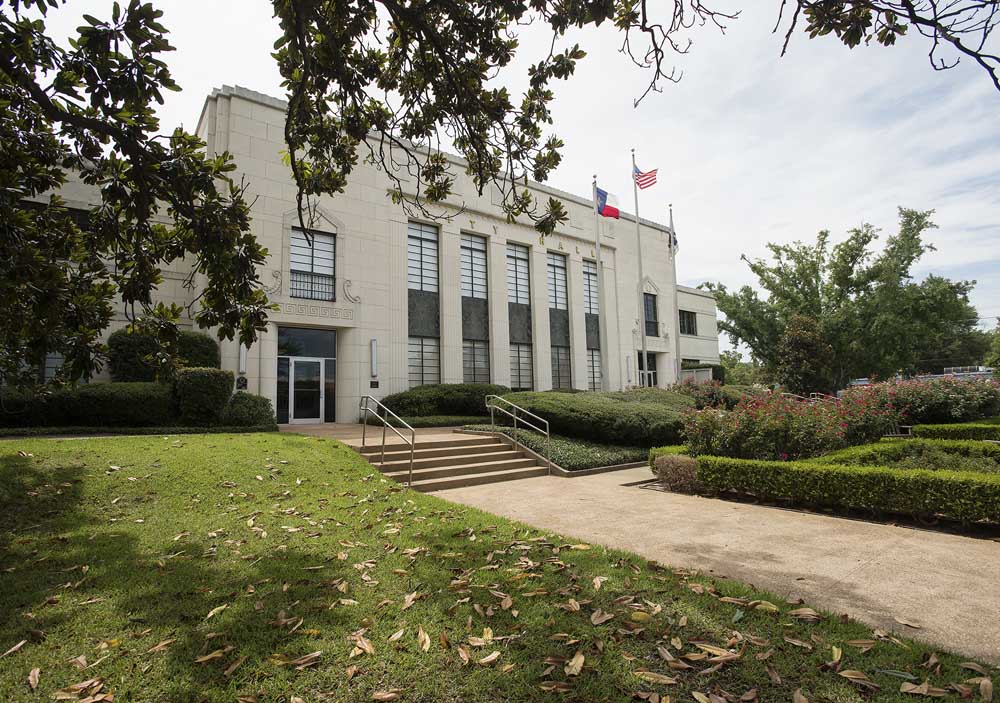Tyler City Council approves ordinance on grease, grit traps at local businesses
Published 5:45 pm Wednesday, February 13, 2019

- Tyler City Hall, 212 N. Bonner Ave., is pictured on June 25, 2018. (Tyler Morning Telegraph File)
Businesses and institutions across Tyler will have new requirements on the fats, oils and grease that they put into the city’s sewer system.
The Tyler City Council voted Wednesday to implement a new ordinance regulating grease and grit traps used in local businesses. The vote at the regular meeting was unanimous.
Trending
The ordinance largely affects grease traps at restaurants, which have grease residue from preparing food, and grit traps at car dealerships, which have dirt and oil residue from washing and maintaining cars.
The law is intended to comply with the terms of a 2017 settlement the city made with the U.S. Environmental Protection Agency, which had investigated the city’s sewer system and alleged violations of the Clean Water Act, among other things.
Grease buildup in sewer pipes was identified as one of the major causes of blockages within the system. The city also has been investing tens of millions of dollars into repairing and replacing the decades-old sewer infrastructure as part of the settlement.
The grease trap requirements will apply to restaurants, food manufacturers, food processors, hospitals, hotels and motels, prisons, nursing homes and other facilities that prepare large quantities of food.
The grit trap requirements will apply to service stations, maintenance garages, auto body shops, car dealerships, car washes, car detailing companies and other facilities “that may discharge prohibited or objectionable pollutants deemed appropriate by the city.”
The minimum size for a standard grease or grit trap will be 750 gallons, or 375 pounds of waste. The ordinance allows companies to use 500-gallon traps, which hold 250 pounds of waste, provided the company provides an engineering plan on it that the city approves.
Trending
Existing companies will be grandfathered under the ordinance. They will be required to follow the manufacturing instructions on their current grease traps but will not need to install new infrastructure unless they make substantial renovations to the property.
Companies will be required to pump their grease or grit traps a minimum of quarterly, but could be required to pump more often based on the amount of waste inspectors find in the traps, or any backups found in the sewer system as a result of the fats, oils or grease.
“We vigorously vetted this ordinance with many players to see what was the concern and how we could address those concerns,” said Jimmy Johnson, the city’s utilities director.
Johnson said the primary threshold for determining a substantial renovation is if it affects 20 percent of a property. There is no dollar amount associated.
Other factors that could trigger compliance with the size of a grease trap include an increase in flow to the grease trap, or a major change to the company, such that there will be an increase in fats, oils and grease.
Councilman Bob Westbrook, the former owner of pizza restaurants, said he worked with city staff and the local restaurant association to write the ordinance. He said the industry is generally happy with it.
Westbrook said the staff designed the language describing a major change to the company keeping in mind how the Northeast Texas Public Health District handles public health permitting of food establishments.
He said at one point the district required new permits when there was an ownership change. He said a major change to the company could include an ownership change or a new menu, and that would trigger full compliance.
“If (a grease or grit trap) is grossly undersized then staff would make that determination that it needed to be upsized or increased, but the mere fact that there’s a human factor in play, it’s up to our team in the field to make that judgment call,” Westbrook added.
Mayor Martin Heines asked if it would be possible to circle back with the restaurant association in a year to discuss the workability of the ordinance, including the 20 percent threshold.
City Manager Ed Broussard said it would be possible to meet with them, but the ordinance could not be rescinded because of the settlement with the EPA. He said the 20 percent threshold is similar to building code ordinances.
Heines said: “Let’s just agree that we’ll come back in a year to make sure we come back and make sure that 20 percent is something that’s working well with the industry, and keep in good communication with them.”
Paul Neuhaus, the environmental compliance engineer for the city, said in an interview that the city has a staffer who been doing restaurant grease trap inspections and enforcement, but the ordinance will make that process stronger.
“Now with this new FOG (fats, oils and grease) program, he’s got some more tools —and some better tools, more applicable tools — to do these inspections that are going to help him do the inspections,” Neuhaus said.
“Without having an ordinance behind him these inspections haven’t been as thorough, so there has been a little less of an opportunity to spend time educating (the business owners),” he said.
Neuhaus said there is another worker who will help with other parts of the ordinance, such as reviewing engineering plans on some grease and grit traps. He does not anticipate hiring more staff.
Car dealerships and other facilities in the automotive industry will see a bigger change because they have not been inspected as part of the current program, he said.
He said business owners will not be able to wash dirt off cars or hose down an oil patch in a garage driveway and send it down the drain, if they have done that in the past.
“The grit traps have never really been inspected in the past and they’re going to be inspected now,” he said.
TWITTER and INSTAGRAM: @_erinmansfield






